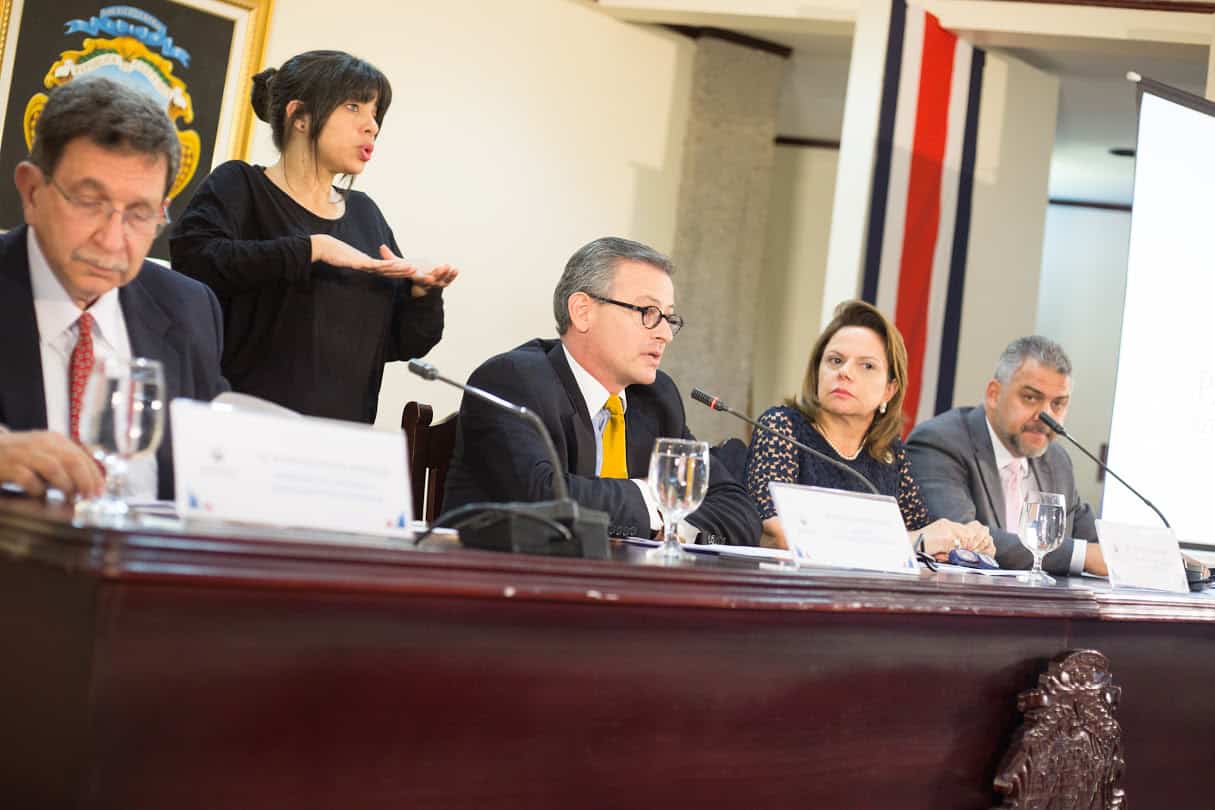Costa Rican lawmakers are weighing in on Venezuela’s political turmoil, asking the government to consider asylum for opposition leaders.
Following last Saturday’s jailing of Caracas mayor Antonio Ledezma by Venezuelan President Nicolás Maduro, Costa Rican lawmakers passed a resolution repudiating the alleged jailing of political prisoners there and asking President Luis Guillermo Solís’s administration to explore granting political asylum for Ledezma and opposition politician Leopoldo López.
Maduro’s government accused Ledezma of participating in a U.S.-backed coup d’état, something the 59-year-old mayor and the U.S. government deny.
The resolution calls for the immediate release of Ledezma, López, another jailed opposition leader, “and all Venezuelans who find themselves in prison for expressing their beliefs against the government.” It also asks the Solís administration to condemn the government crackdown and urge Venezuela to release any and all political prisoners.
The resolution passed with 30 votes in favor and 21 against. Six lawmakers were absent or abstained.
López’s detention led to a wave of protests against the socialist president, although Ledezma’s arrest has spurred only small, spontaneous rallies following government authorization last month for soldiers to use deadly force on demonstrators.
During a news conference on Tuesday, Costa Rican Foreign Minister Manuel González said that the government had not received any requests for asylum from Venezuelan opposition members related to the recent unrest. He said the government would not extend offers of asylum, but that any requests would be treated like all others.
González said that he respected the independence of the Legislative Assembly to voice its opinion on the matter but noted that official foreign policy is set by the Foreign Ministry.
Monday evening, after the legislature’s resolution passed, the Foreign Ministry published a statement on its website saying that Costa Rica was closely following the actions in Venezuela and expressed it’s “profound concern” over the recent events.
Still, González told reporters on Tuesday that “it is not for me or for this ministry to assess or judge if there are arbitrary detentions (in Venezuela) or not.”
“It’s the (Venezuelan) government that needs to explain to its people what drove the decisions it’s made. We absolutely respect human rights, the right of any prisoner in any country, the opposition’s responsible exercise (of its rights) and the state’s respect for the rule of law,” González said.
Venezuelan President Maduro’s popularity has plummeted to 20 percent as the oil-rich nation struggles to provide basic goods, secure hard currency reserves and address rampant inflation. The recent drop in international oil prices has stressed the country’s crude-dependent coffers.
The Venezuelan leader accused the United States of masterminding the alleged coup that got Ledezma jailed, a charge the U.S. State Department called “baseless.”
We regret that the Venezuelan govt. continues to blame the US & international community for events inside Venezuela. http://t.co/HXzwIonsjN
— Department of State (@StateDept) February 20, 2015
Allegations by the Venezuelan government that US is involved in coup plotting & destabilization are baseless & false. http://t.co/HXzwIonsjN
— Department of State (@StateDept) February 20, 2015
“The United States is not promoting unrest in Venezuela nor are we attempting to undermine Venezuela’s economy or its government,” the U.S. State Department said in a statement on its website on Feb. 19. “We remain Venezuela’s largest trading partner. Venezuela’s economic and political problems are the result of the policies of the Venezuelan government.”
Costa Rica has so far taken a hands-off approach to the latest crisis in Venezuela. But the Foreign Ministry’s statement applauded the creation of an UNASUR commission of foreign ministers from Brazil, Colombia and Ecuador to try and establish a dialogue between the opposition and the government.
AFP contributed to this report.






